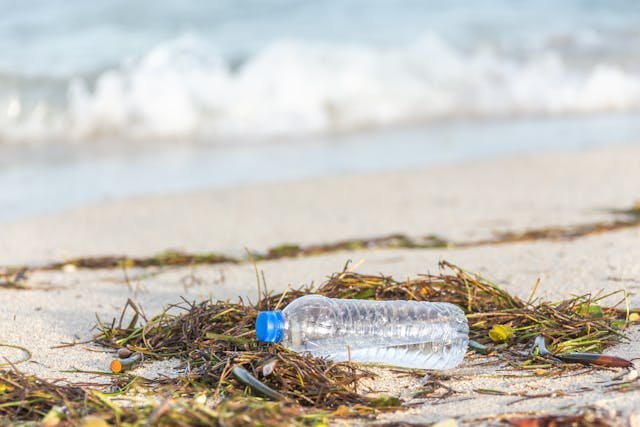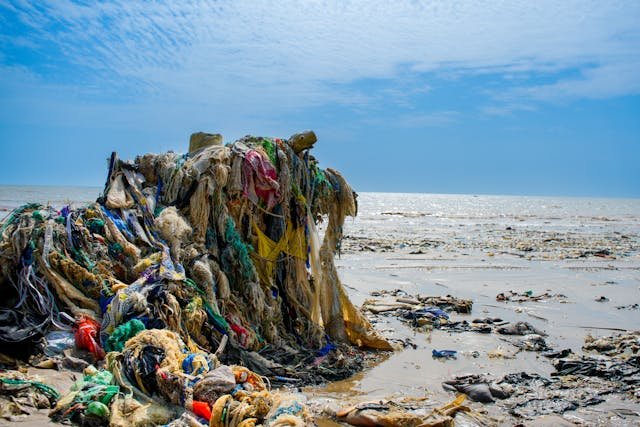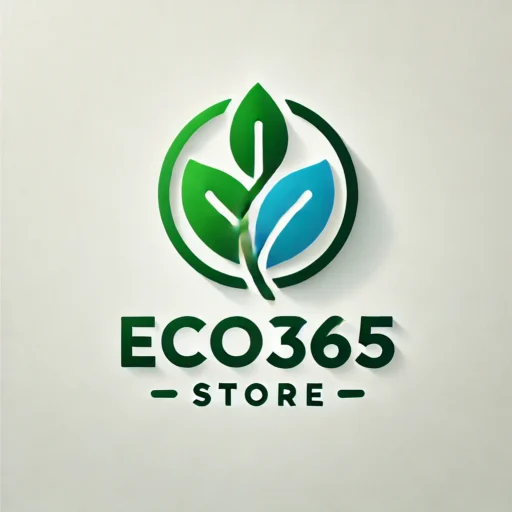Every year, millions of tons of plastic waste end up in the ocean, harming marine life and ecosystems in ways that are both heartbreaking and far-reaching. From turtles entangled in discarded nets to microplastics poisoning fish, plastic pollution disrupts the ocean’s delicate balance, threatening wildlife, coral reefs, and even the seafood on our plates. What starts as a single-use bottle or bag can ripple into a global crisis, with over 8 million tons of plastic entering marine environments annually, according to Ocean Conservancy estimates. But there’s hope—and action we can take. This guide explores 10 actionable ways to reduce plastic pollution in the ocean and promote a sustainable future. Whether you’re an individual, a community, or a policymaker, these steps offer practical solutions to curb the tide of plastic waste and protect our planet’s blue heart for generations to come.

Why is Plastic Pollution in the Ocean a Problem?
Plastic pollution in the ocean is a growing environmental crisis, affecting marine life, ecosystems, and even human health. Here’s why it’s a major concern:
1. Harm to Marine Life
- Sea creatures mistakenly ingest plastic debris, which can cause internal injuries, blockages, and starvation.
- Many marine animals, including turtles, fish, and seabirds, get entangled in plastic waste, leading to suffocation or restricted movement.
- Ghost fishing gear (abandoned nets and traps) continues to trap marine life, harming biodiversity.
2. Microplastics Contamination
- Over time, plastic breaks down into microplastics (tiny particles less than 5mm in size).
- These microplastics enter the food chain as fish and other sea creatures ingest them.
- Humans consume microplastics through seafood, drinking water, and even air, potentially leading to long-term health risks.
3. Damage to Ecosystems
- Plastic debris clogs coral reefs, blocking sunlight and harming marine organisms that rely on healthy reefs.
- Polluted beaches and shorelines not only threaten marine habitats but also impact local tourism and economies.
- Floating plastic waste accumulates in ocean garbage patches, such as the Great Pacific Garbage Patch, disrupting natural ocean currents and ecosystems.
The increasing levels of plastic waste in the ocean highlight the urgent need for sustainable waste management, recycling, and reducing plastic consumption to protect marine life and ecosystems.

10 Ways to Reduce Plastic Pollution in the Ocean
- Reduce Single-Use Plastics 🚫♻️
Plastic straws, bags, and bottles hurt the ocean, but you can help! Say no to these one-time-use items and grab reusable stuff instead—like a cool stainless steel water bottle or bamboo fork. It’s an easy way to stop trash from piling up in the sea and hurting fish.
Recycle Properly ♻️
Recycling keeps plastic out of the ocean, but you’ve got to do it right. Sort your trash so plastics don’t end up in landfills or water. Check your town’s rules—some take bottles, some don’t. Doing this helps the planet reuse stuff instead of letting it float away.
Participate in Beach Cleanups 🏝️🧹
Beach cleanups are fun and save the ocean! Join a group to pick up plastic before it washes out to sea. You could even get friends to help clean your local shore. It’s awesome to see less trash and know you’re helping sea turtles and birds.
Support Plastic-Free Brands 🛒
Pick brands that skip plastic for stuff like paper or compostable wrappers. These companies care about the ocean and don’t add to the mess. When you buy their snacks or shampoo, you’re telling other stores to ditch plastic too. It’s a small choice with a big impact!
Use Eco-Friendly Packaging 📦🌱
Switch to paper bags or glass jars instead of plastic for your snacks or school supplies. Tell stores you like these better—they might listen! Less plastic means fewer pieces floating in the ocean, choking fish. It’s a simple way to keep things green and clean.
Avoid Microplastics in Products 🧴🚿
Tiny plastics hide in face scrubs and soaps—bad news for the ocean! Look at labels and skip anything with “polyethylene.” Use natural stuff like oatmeal scrubs instead. Those little bits wash into the sea and hurt fish, so this swap makes a difference.
Spread Awareness About Plastic Pollution 📢🌍
Tell your friends and family how plastic messes up the ocean—like how tons of it sink there every year. Share tips, like using reusable bags, on social media or in class. When more people know, they’ll help too, and the ocean gets a break.
Choose Sustainable Fishing & Boating Practices 🎣🚤
If you fish or boat, don’t use plastic nets that might break and float away. Throw trash in a bin, not the water! This keeps the ocean safer for dolphins and crabs. Even small habits like these stop plastic from ruining their home.
Support Policies to Reduce Plastic Waste 🏛️
Ask grown-ups to make rules against plastic bags or for more recycling. You can write a letter or join a group that talks to leaders. These big changes stop tons of plastic from hitting the ocean. Your voice can help make the world cleaner!
Reduce Plastic Use in Daily Life 🌱🏠
Carry a reusable bottle and bag to school—no plastic needed! Use wooden spoons or cloth napkins instead of throwaway stuff. These little switches keep junk out of the ocean. It’s easy, and you’ll feel good knowing fish aren’t swimming in trash.
Conclusion
Every small action contributes to a cleaner ocean, and that’s pretty awesome! The 10 ways to reduce plastic pollution in the ocean prove you don’t need to be a superhero to make a difference—just a kid who cares. From skipping plastic straws to picking up beach trash, every step helps fish, turtles, and dolphins swim happier. Start today: grab a reusable bottle, tell your friends how plastic hurts the sea, and keep spreading the word. You can even ask grown-ups to make rules that stop plastic waste. Marine life needs you, and with these ideas, you’re ready to protect the ocean—one small, cool choice at a time!

Anamika is a passionate writer for Eco365Store.com, specializing in topics that inspire a cleaner, greener world. With expertise in home cleaning, recycling, and eco-friendly solutions, she crafts engaging and informative articles that help readers adopt sustainable practices in their daily lives.
